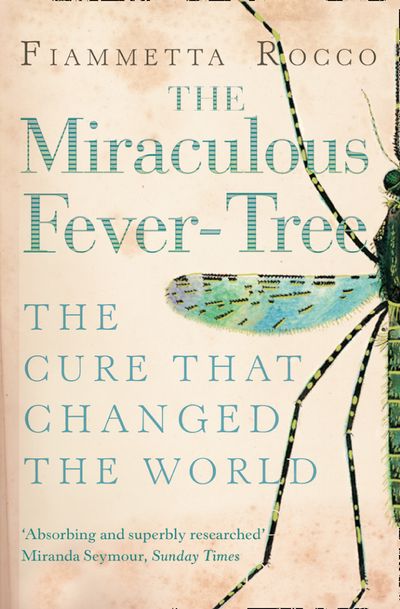The Miraculous Fever-Tree: Malaria, Medicine and the Cure that Changed the World
A rich and wonderful history of quinine – the cure for malaria.
In the summer of 1623, ten cardinals and hundreds of their attendants, engaged in electing a new Pope, died from the ‘mal’aria’ or ‘bad air’ of the Roman marshes. Their choice, Pope Urban VIII, determined that a cure should be found for the fever that was the scourge of the Mediterranean, northern Europe and America, and in 1631 a young Jesuit apothecarist in Peru sent to the Old World a cure that had been found in the New – where the disease was unknown.
The cure was quinine, an alkaloid made of the bitter red bark of the cinchona tree, which grows in the Andes. Both disease and cure have an extraordinary history. Malaria badly weakened the Roman Empire. It killed thousands of British troops fighting Napoleon during the Walcheren raid on Holland in 1809 and many soldiers on both sides of the American Civil War. It turned back many of the travellers who explored west Africa and brought the building of the Panama Canal to a standstill. When, after a thousand years, a cure was finally found, Europe’s Protestants, among them Oliver Cromwell, who suffered badly from malaria, feared it was nothing more than a Popish poison. More than any previous medicine, though, quinine forced physicians to change their ideas about treating illness. Before long, it would change the face of Western medicine.
Using fresh research from the Vatican and the Indian Archives in Seville, as well as hitherto undiscovered documents in Peru, Fiammetta Rocco describes the ravages of the disease, the quest of the three Englishmen who smuggled cinchona seeds out of South America, the way quinine opened the door to Western imperial adventure in Asia, Africa and beyond, and why, even today, quinine grown in the eastern Congo still saves so many people suffering from malaria.
'This engrossing, beautifully crafted history is a parable for our times, I believe, underscoring the foolishness of men, with some rare exceptions, and the munificence of Nature' Adrian Hartley, Spectator -
'Absorbing and superbly researched' Miranda Seymour, Sunday Times -
'A fascinating account of quinine's key role in the making of the modern world. Many have tried to tell this tale, and it is a testament to Rocco's flair and sheer hard work that she has found new things to say' Gail Vines, Independent -
'Fiammetta Rocco's wonderfully elegant book, drawing on previously undiscovered documents, attacks its subject as hungrily as a mosquito detecting its next meal' Philip Blackmore, Catholic Herald -
